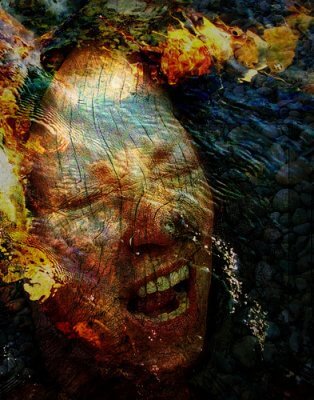Trauma Therapy – What Actually Works?

By: cea +
by Andrea M. Darcy
Trauma, whether recent or from childhood, can leave us very sensitive. Things which might not upset others will trigger our body’s memory of trauma, leaving us a mess. So trauma therapy needs to take this into account.
Instead of assuming regular therapy will work for your complex trauma or PTSD? Consider the following types of therapy.
You can avoid being so triggered by therapy you feel worse than when you started.
Eye movement desensitisation and reprocessing (EMDR)
This type of therapy works best when you have had one strong traumatic event that has given you post-traumatic stress disorder (PTSD) and flashbacks. It might work for complex PTSD, made of consistent trauma over time, but it depends on the individual.
The process of EMDR can sound odd. You talk about your traumatic experiences as the therapist gets your eyes to make rapid movements. This can involve flashing a light in your eyes or asking you to follow a pencil with your eyes. Yes, it might sound strange, but it’s proven by research to be very effective, and approved by the necessary therapy associations.
Read more in our article, “What is Eye Movement Desensitisation and Reprocessing (EMDR)?”.
Cognitive behavioural therapy (CBT)
Why is CBT recommended for trauma? For starters, it’s not about talking endlessly about your past. While that might help a person with general anxiety or depression, talking about past trauma can re-traumatise someone with complex PTSD.
CBT therapy is better as it focuses on your life right now. How can you better manage?

By: Phoenix Wolf-Ray
Cognitive behavioural therapy focuses on retraining your brain away from negative thoughts and ‘cognitive distortions’. And trauma tends to make your brain think in just these dramatic extremes (the world is dangerous, I can’t do anything right) that CBT excels at neutralising.
A cognitive behavioural therapist can also help you start to take control of your behaviours, so you are not always hiding from life or sabotaging yourself.
Some therapists even offer a type of CBT geared just for trauma, called “trauma-focused cognitive behavioural therapy” (TF-CBT).
Note that CBT is a short-term therapy. You and the therapist will commit in the first few sessions to how long you’ll work together.
Schema Therapy
Schema therapy focuses on helping you recognise and change behavioural patterns.
More importantly, for those who suffered childhood trauma, it shows you how to have trusting relationships.
If your trauma involved being neglected or abused by a parent or caregiver you are unlikely to have had trusting relationships since.
The loneliness not being able to trust others brings can lead to depression and anxiety. It also makes therapy seem intimidating, as it is such an intimate relationship.

By: Crystal
You can feel needy, or let down by a normal therapist. A schema therapist, however uses what is called ‘limited reparenting’. This means they are very supportive and understanding, like a parent figure.
Schema therapy is particularly recommended for those who suffered sexual abuse as a child and now have borderline personality disorder.
Dialectical behaviour therapy
This is another form of therapy that helps those who suffered sexual abuse, and now have complex trauma, and/or borderline personality disorder.
The creator of this type of therapy suffered BPD herself. She wanted to create a therapy that could help those with impulsivity and emotional dysregulation to create a life they felt good being in. DBT combines things like mindfulness and behavioural interventions. It is often done using a combination of group work and then one-on-one sessions.
Body-based psychotherapy
Post-traumatic stress disorder is a highly physical experience. It can involve muscle tension, jumpiness, constant colds and flus or unexplained medical symptoms, headaches, stomach upsets, and sleep problems. Why is this?
For starters, if our stress response is too easily triggered due to past trauma, then our body will be releasing stress hormones that can help cause such symptoms.
But the other idea is that the body ‘stores’ trauma. This can particularly be true in cases of physical or sexual abuse.
Body psychotherapy is a licensed form of psychotherapy. It combines talking about and processing the past with listening to the body itself, and might use body movements to release emotions.
Some body psychotherapists use a tool called ‘somatic therapy‘ or ‘somatic processing’. It is a technique designed just to help clients who have gone through traumatic experiences. But note that used on its own, by someone who is not a registered therapist, it is considered an alternative treatment.
Ready to stop being controlled by past trauma? Contact a Harley Therapy clinic where we can connect you with trauma specialists in central London. Not in London, or even the UK? Our booking platform can help you find an affordable online UK therapist.

Andrea M. Darcy is a health and wellbeing writer as well as mentor who often writes about trauma, relationships, and ADHD. Find her on Instagram @am_darcy





What is your opinion of using psilocybin (magic mushrooms) to help process trauma quickly?
Hi Adrian, we don’t offer it and have no expertise in it or the legalities of it either, so we really can’t offer any opinion, sorry about that.